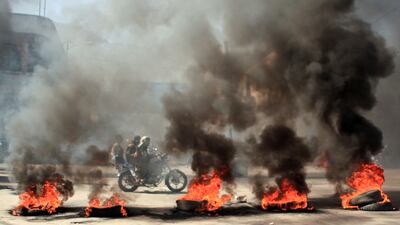Representatives from the Yemeni government and the Houthi rebel group met in the Jordanian capital Amman on Wednesday to discuss attempts to end a siege on vital parts of Taez, Yemen's third largest city.
The office of the United Nations Yemen Envoy, Hans Grundberg, confirmed that talks had begun and efforts were under way to extend a two-month ceasefire, which expires on June 2.
A government delegation told local media that the negotiations could run into three days.
Prime Minister Maeen Abdulmalik Saeed met government negotiators in Aden on Tuesday, the Yemeni news agency tweeted.
The impoverished Arab country descended into civil war in 2014 after the Iran-aligned Houthis overran the capital Sanaa from the internationally recognised government, which relocated to the southern port city of Aden. In 2015, a Saudi-backed coalition intervened in the conflict at the request of the government.
Taez stretches from central Yemen to the south west. Government forces, allied tribes and other rival factions opposing the Houthis have gained a foothold in the city centre. However, the Houthis have mainly entrenched themselves over the past seven years in the east and north, which are home to pivotal trade routes and industrial installations.
Yemen’s conflict has entered its eighth year and created one of the world’s worst humanitarian crises. Around 80 per cent of the population is reliant on aid and millions face starvation, according the United Nations World Food Programme.
The continuing truce is the first such one between the government and the Houthis in the past seven years.
It has largely held despite alleged violations by the Houthis.
There have been signs of confidence-building measures in recent weeks as fuel shipments were allowed to the country’s principal harbour city of Al Hodeidah, which is controlled by the Houthis.
Sanaa International Airport has also reopened for commercial flights for the first time since 2016.
Negotiations to reopen the roads of Taez and end the Houthis’ blockade had been placed on the back-burner until the UN announcement on Wednesday.
Government officials told The National on Monday that the ceasefire could be extended, as Houthi rebels said they were “not opposed” to the idea.


